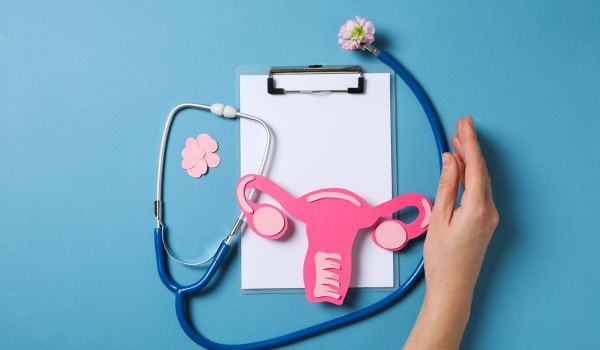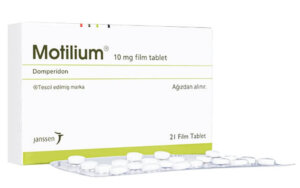 If it hadn’t been for the crisis that hit the world when COVID-19 broke out in 2020, I believe that the revelations about the new weight-loss drugs would have reached the top of the list of the most talked-about health issues in the current decade. It has garnered the highest level of public interest and awareness and has been prominent in every form of media, in real-time and on-screen, in journals and newspapers. People have been hearing from doctors, pundits, and media personalities alike about this phenomenal change in how people can approach one of the oldest and most persistent health issues of modern life: sustainable weight loss. Unfortunately, like all other previously unknown subjects that quickly garner public attention, there grew, alongside the pool of real news, a degree of misinformation and disbelief about glucagon-like peptide 1 (GLP-1) agonists drugs. This short article will try to clarify and demystify many questions about if, why, and how GLP-1 drugs stop working.
If it hadn’t been for the crisis that hit the world when COVID-19 broke out in 2020, I believe that the revelations about the new weight-loss drugs would have reached the top of the list of the most talked-about health issues in the current decade. It has garnered the highest level of public interest and awareness and has been prominent in every form of media, in real-time and on-screen, in journals and newspapers. People have been hearing from doctors, pundits, and media personalities alike about this phenomenal change in how people can approach one of the oldest and most persistent health issues of modern life: sustainable weight loss. Unfortunately, like all other previously unknown subjects that quickly garner public attention, there grew, alongside the pool of real news, a degree of misinformation and disbelief about glucagon-like peptide 1 (GLP-1) agonists drugs. This short article will try to clarify and demystify many questions about if, why, and how GLP-1 drugs stop working.
A short history of GLP-1 agonist medicines for weight loss
It started after a new drug called Ozempic, which was dedicated to the treatment of type 2 diabetes, was found to also produce steady and substantial weight loss in the majority of people using it. Subsequent studies focused on how this can be exploited to help the enormous number of people in the Western world who battle to keep their weight within healthy limits. It’s reported that nearly one-half of all adults in the US, and an even higher proportion of children and teenagers, are either overweight or obese.
Following Ozempic, a newer drug called Mounjaro, which also incorporates GLP-1 agonists, was released for treating diabetes, and it had slightly better results than Ozempic. Simultaneously, people had become aware that Ozempic was on the market, in part due to the surge of publicity that was coming from all quarters, and they flooded their healthcare services demanding access to this “wonder drug.” Based on FDA regulations at the time, doctors couldn’t prescribe Ozempic or Mounjaro to non-diabetic patients, and health insurers broadly refused to subsidize payment for the drug when prescribed for weight loss. This left people having to pay the full price of around $1000 for a one-month supply. Nevertheless, the drugs were so effective, and the amount of publicity they were getting was so pervasive that demand quickly outstripped the manufacturer’s capacity. As a result, there was a worldwide shortage, impacting the availability of diabetic patients who needed it for essential therapy and removing the incentive for any price competition to bring prices down for other users.
The next phase in the evolution of weight loss medications based on GLP-1 came when the main producers created a form of GLP-1 agonists geared specifically to reducing weight. Novo Nordisk, the makers of Ozempic, created Wegovy, and Eli Lilly, the makers of Mounjaro, created Zepbound. Each of these new drugs contains the same components as its predecessors but comes with higher strengths than the levels necessary for diabetics.
The blowback on GLP-1 weight loss
There’s no denying that drugs based on GLP-1 agonists are a significant step forward in the fight against obesity. In clinical trials, participants experienced weight loss of 15%-25%. We have discussed some of these studies on our blog. However, a combination of factors, including the frustration of people unable to access the drugs, the high prices, and the reluctance of insurers to share the cost, has led to a growing movement in the public sphere to question the value of these medications. This new complaint suggests that GLP-1 drugs may stop working, adding to the skepticism and frustration.
Myth #1 — it makes you look bad
First came the “news” that losing all that weight made you look older. It even managed to generate two derisory terms — the “Ozempic face” and the “Ozempic butt.” It was true that losing weight too quickly and without a proper exercise routine to build up muscle mass when body fat was being lost could (temporarily) change one’s appearance for the worse. But Ozempic/Wegovy and Mounjaro/Zepbound came with strong advice on maintaining a healthy diet and exercising. Slow-and-steady weight loss progress had been demonstrated in the trials, which ran for more than five years in the case of STEP for semaglutide (in Ozempic) and SURMOUNT-1 in the case of tirzepatide for Mounjaro.
Proper medical advice never promised an instantaneous shedding of all that excess mass. Robust exercise alone isn’t enough to contribute to significant weight loss, but it is essential to the maintenance of lean body mass. Otherwise, the outward appearance becomes hollowed out when nothing comes in to replace the lost body fat.
Myth #2 — the weight bounces back
Next came publicity based on some short-term studies showing that once people stop taking these drugs, either by their own choice, shortages, or lack of affordability, they will regain most, if not all, of the weight they lost. This also has its own term—the “Bounce Back” effect.
It’s important to remember that the explosion of interest and usage of weight loss meds happened so recently that there’s been very little time for scientists to study what happens to people who take them over extended periods or stop taking them suddenly. What is known is that stopping the use of the meds and continuing with poor dietary control and lack of exercise is almost certain to cause weight gain. That’s also been the case for every weight loss regime that people have tried. Unless a person is strongly committed to eating and exercising properly, there is no (healthy) way to lose weight and keep it off. Certainly, semaglutide and tirzepatide were never marketed as “miracle cures” for obesity.
Myth #3 — GLP-1 drugs stop working
People who were on the medications started to complain that they stopped working, even with continued use. This is called the plateau, but it’s not unique to the new weight loss drugs. All weight loss programs, whether pure calorie-controlled eating, metabolism switching such as Atkins, controlled diet and exercise, or with medication like Wegovy and Zepbound, reach a point at which the rate of weight loss grinds down, with the body stubbornly refusing to lose more weight. Essentially, it stabilizes at its set point, as elaborated by Dr. Fatima Cody Stanford, a specialist obesity medicine physician and associate professor at Harvard Medical School in Boston.
This is not just true of diets, since even more radical interventions such as bariatric surgery arrive at a plateau. Dr. Stanford explains, “The body knows what it needs to do to maintain itself, and the brain knows where it’s supposed to be. And when you lose weight and reach what you feel is a lower set point, the body resists.”
This phenomenon can be managed under proper care and advice from healthcare professionals, and the plateau can be surmounted. One of the simpler techniques is to rework the diet. People who started at a very high body weight (obese) may have been given a daily 2000-calorie diet, representing a substantial reduction from their prior eating habits. Once they have reached the plateau, they may have lost 25% or more of their body mass, and at this point, 2000 calories may, in fact, be over-eating.
Frequently, doctors bring other less aggressive medications into the regime, such as GLP-1 agonist drugs plus Metformin. Read more about the recognition of Metformin as a weight loss medication here.
Myth #4 — you’re on it forever
Combining the other complaints, found mainly on social media, that once the drug companies had started a person on these medications, it was impossible to stop without all the weight rushing back. However, several studies have shown that with proper management, a person can be “weaned” off the medication in much the same way that a patient can be weaned off an addictive drug that is no longer of benefit. If doctors have reason to believe that, for their particular patient, GLP-1 drugs stop working properly or the benefits no longer justify the cost, they can go onto a process called tapering of the GLP-1 dose. This is a program of steadily reducing the weekly dose from the maximum recommended for optimal weight loss and rolling it downwards until it can either be terminated completely or maintained at a low maintenance level — minimal strength or bi-weekly instead of weekly. All of this goes along with careful control of dietary intake and keeping up with exercise routines.
Conclusions
Any proper weight loss program is not a simple, narrow path that works like a straight line to an end goal. It has to be just one element in a person’s behavioral health. Lifestyle, diet, exercise, medication, psychological attitudes, and social feedback all reinforce the process, leading a person along that path. The psychological part of this is just as important as the physical elements. Everyone is different, and they will have different responses to them. Take advice when it’s coming from qualified people who know what they are talking about, and dial down the volume on the babble that’s coming from the social media and public space that claims that GLP-1 drugs stop working.
A final thought — if you have been put off thinking about even trying these new medicines purely because of the high cost when buying them from local US pharmacies, remember that here at IsraelPharm, we have been leading the market with low-cost GLP-1 agonist meds. Currently, our price for a one-month supply of Wegovy 1.7 mg strength is just $575, compared to the retail cost from US pharmacies of around $1500. Similar savings can be made on the full-strength Wegovy (2.4 mg) pen, which we sell for $625, compared to more than $1600 at retail US sources.
















